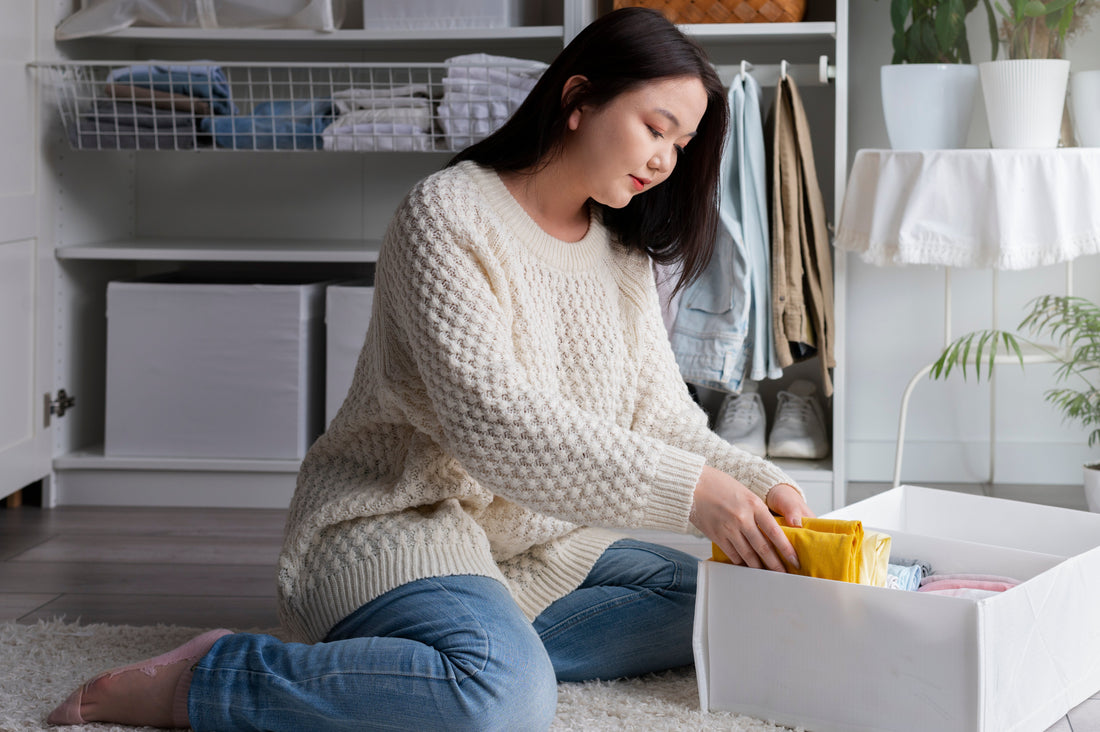If you’ve ever stood knee-deep in a pile of stuff you swear you didn’t buy, staring blankly at a drawer of mystery cables and expired coupons, you know that decluttering your home can feel like emotional surgery. It’s overwhelming, sentimental, and—if you’re not careful—wasteful. But the truth is, getting rid of things doesn’t have to mean sending them straight to the landfill. With a bit of creativity, some planning, and a willingness to part with what no longer serves you, you can make your space lighter while treading gently on the planet. Let’s talk about how to declutter your home in ways that are thoughtful, sustainable, and maybe even kind of fun.
Reframe What “Declutter” Actually Means
The idea isn’t to simply toss everything out—it’s to realign your space with your current life and values. Decluttering sustainably starts with mindset. You're not purging, you're curating. When you stop seeing items as trash and start recognizing them as resources with a second (or third) life, your approach changes. You don’t just ask, “Do I need this?”—you also ask, “Can this be useful to someone else or something else?”
Go Paperless with Digital Peace of Mind
As you're sorting through old drawers and overstuffed folders, you’ll probably stumble on a few documents you don’t need daily—but can’t afford to lose. That’s where mobile scanning apps come in handy, letting you digitize everything from medical records to tax forms with just a few taps. The best ones even offer features like file compression and password protection to help you out when you're juggling both security and space. Once your essentials are safely stored in the cloud, you’ll wonder why you ever kept that bulging accordion file in the first place.
Find New Homes, Not New Landfill Residents
Donating is one of the easiest ways to keep stuff out of the trash, but not all donations are created equal. Before you drop off a box of miscellaneous castaways at the nearest thrift shop, do some homework. Local mutual aid groups, refugee resettlement programs, women’s shelters, and neighborhood Buy Nothing groups often need specific items and appreciate thoughtful donations. When someone truly needs what you’re giving, you’re not just clearing out your house—you’re participating in a micro-economy of care.
Recycle Smart, Not Lazy
Most of us want to recycle the “right” way, but let’s be honest: it can get confusing. Plastic categories, weird rules about pizza boxes, those mystery foil wrappers—it’s a maze. Take a few minutes to look up your city’s recycling guidelines, and make sure you’re not “wishcycling” (that’s when you toss things into the bin hoping they’re recyclable). Electronics, batteries, and clothing often require separate drop-off points. Sites like Earth911 can help you find exactly where to take those trickier items.
Repurpose with a Bit of Grit and Imagination
You don’t have to be a full-on Pinterest person to give something a second life. Old t-shirts can become cleaning rags or plant ties. Empty jars work great for storing pantry staples, craft supplies, or even tiny screws and bolts you forgot you had. That stained wooden chair with a cracked seat? A coat of paint and a few screws might turn it into a perfect plant stand. Repurposing isn’t just about saving money—it’s about slowing down the disposable mindset.
Sell the Good Stuff, But Be Real About It
Yes, Facebook Marketplace is a chaotic mess. But it’s also full of people looking for exactly the type of side table or vintage lamp you’re trying to unload. Selling your things is a great way to recirculate quality items while making a little cash in the process. Just be honest about condition and don’t get too precious with pricing. Sometimes a quick porch pickup and a “thanks!” is worth more than holding out for a perfect buyer.
Compost the Rest—Yes, Even Some Packaging
Not everything can be donated, recycled, or sold, but that doesn’t mean it has to go straight to trash. If you're clearing out expired pantry items or dead houseplants, composting is your best friend. And here’s where something small makes a big difference—like Eco Bunny’s compostable sandwich and snack bags. These little guys look and feel like plastic, but they break down naturally once composted. Whether you’re meal-prepping or storing leftover parts from a puzzle that’s missing too many pieces, using bags like these keeps microplastics out of your bin—and out of your conscience.
Pause Before You Add More
Decluttering is only half the story. The other half is being more mindful about what comes back in. That doesn’t mean you can’t shop or decorate or change your mind. It just means asking better questions before you swipe your card or hit “Buy Now.” Is this something I need, or something I’ll need to declutter later? Could I borrow it instead? Rent it? Find it secondhand? Living lightly doesn’t mean living less—it just means living with more intention.
Create a Ritual, Not a One-Time Cleanse
Decluttering sustainably isn’t a project you finish in a weekend; it’s a habit you build over time. Maybe it's a monthly walk-through of your space with a donation bag in hand. Maybe it’s a seasonal edit, like you do with your wardrobe. Maybe it’s keeping a “stuff I don’t use” basket in the closet and emptying it once it’s full. Whatever your rhythm, the goal is to turn it into a regular, low-pressure practice. That way, your home stays lighterwithout needing a dramatic reboot every year.
At its best, decluttering is an invitation to start over, to live in a space that reflects who you are now—not who you were, or who someone else thinks you should be. When you declutter with sustainability in mind, it’s more than tidying up—it’s a quiet act of resistance against the culture of excess. You keep your stuff out of landfills. You slow the cycle of consumption. And maybe, most importantly, you create a home that breathes, a little more open, a little more honest, a little more you.
Discover eco-friendly solutions for everyday life at EcoBunny Store, where sustainability meets style with biodegradable, compostable, and even edible products!
Article by Joe Rees

